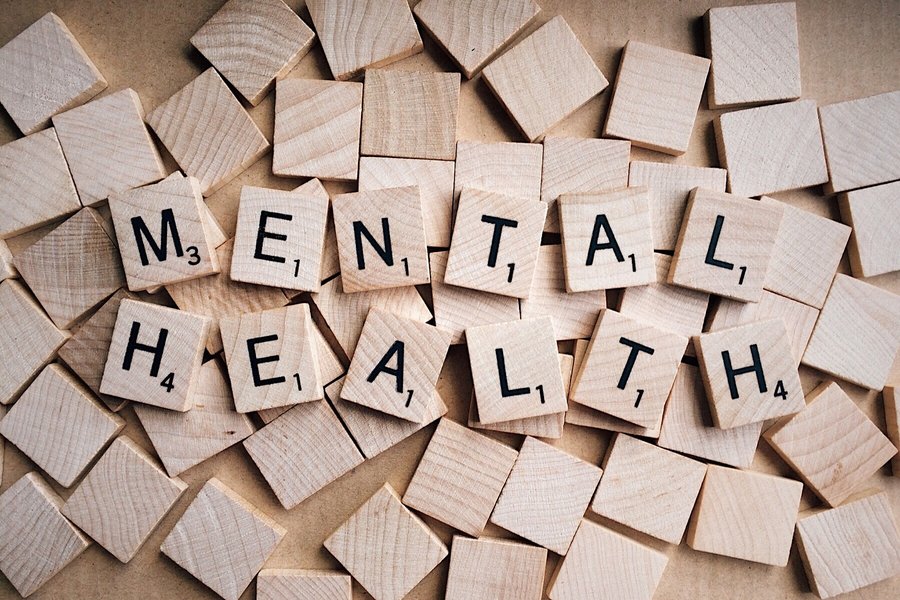Emotions are a fundamental, natural aspect of human experience, shaping our thoughts, behaviors, and overall outlook on life. They help us connect with others, recognize our wants and needs, and help us respond to different situations.
Whether we are experiencing joy, anger, or sadness, acknowledging and managing our emotions is crucial for our mental and emotional well-being. Learning how to identify and manage emotions and balance mental health are essential steps towards self-improvement. However, sometimes it may be difficult to identify and manage these emotions in a healthy way.
The good news is that with practice and some guidance, we can learn how to identify and manage our emotions effectively, improve our overall mental well-being, and lead happier, more fulfilling lives.
In this guide, we’ll explore the importance of emotional awareness, how to identify various types of emotions and practical strategies for coping and managing them.
So, let’s get started!
What Does it Mean to Identify and Manage Our Emotions?
Identifying and managing our emotions means being aware of them, understanding what triggers them, and finding healthy ways to deal with these emotions. Managing our emotions means understanding what we’re feeling and why. It’s like being your own personal detective, trying to solve the mystery of your mood.
Self-awareness is essential in this process. When you are self-aware, you are better equipped to recognize how you feel and why you feel that way. With awareness, you can then take steps to manage your emotions in a more positive and proactive manner.
By identifying and managing your emotions, you can improve your mental well-being in countless ways. For starters, you can experience increased positive emotions, such as joy, love, peace, and contentment. You can also reduce negative emotions, such as anger, fear, frustration, and sadness.
Self-awareness helps us to develop insight into our thought patterns and identify potential triggers, allowing us to take steps to manage emotions before they spiral out of control. When we can identify our emotions, we’re in control of them instead of the other way around.
For example, if you’re feeling angry, you might take a step back and ask yourself why you’re angry. Once you understand the underlying cause, you can begin to process this in a healthier way.
The ability to manage your emotions is fundamental to personal development and functioning in everyday life. When you effectively control how you feel, you can make purposeful decisions, form healthy relationships, and respond appropriately to challenges.
Additionally, the ability to manage your emotions helps you to communicate effectively, set goals, and maintain a positive self-esteem. Managing your emotions is empowering. It means you’re taking responsibility for your feelings and not letting them control you.
The Benefits of Emotional Awareness for Your Mental Health
Emotional awareness refers to our ability to recognize, understand, and manage our emotions effectively. It involves being aware of our emotional state and understanding how our emotions impact our thoughts, behaviors, and interactions with others.
By being aware of our emotions, we can also gain insight into what triggers them, and better understand the root causes of our emotional experiences. This awareness can help us develop more effective coping strategies and make healthier choices in response to our emotions.
Furthermore, developing emotional awareness can have significant benefits for your mental health. When we can identify and manage our emotions effectively, we are better equipped to navigate the ups and downs of life. Here are some of the benefits of developing emotional awareness:
- Reduced stress and anxiety:
Emotions such as fear and anxiety can be overwhelming and lead to a range of physical and mental health problems.Emotional awareness allows us to recognize these emotions as they arise and take steps to manage them before they become overwhelming.
We can also better recognize and regulate our reactions to stressors and triggers in our daily lives. When we are in touch with our emotions, we are able to better manage our responses to different situations and therefore avoid behaviors that could lead to negative outcomes.
- Improved communication:
When we can identify and express our emotions effectively, we are better able to communicate with others.This can lead to improved relationships and greater social support, which are important factors in maintaining good mental health.
- Better decision-making:
Emotions can cloud our judgment and lead us to make impulsive or irrational decisions.By developing emotional awareness, we can learn to separate our emotions from our decision-making process and make more rational and informed choices.
- Increased self-awareness:
Emotional awareness can help us better understand ourselves and our needs. This can lead to greater self-acceptance and self-compassion, which are important for good mental health.It allows you to take a closer look at your thoughts and behaviors, and to identify and acknowledge your feelings rather than suppressing them. It also can help you feel more connected with yourself and the world around you.
- Improved coping skills:
Life can be challenging, and having strong coping skills is essential for maintaining good mental health.Developing emotional awareness can help us identify healthy coping strategies and avoid harmful ones such as substance abuse or self-harm.
Ultimately, emotional awareness enables us to better manage our emotions, leading to a happier and more fulfilling life.

Why is it important to manage your emotions?
Managing your emotions is important because it helps you to deal with the challenges and stressors that you face in your daily life.
When we don’t control our emotions, they can quickly become overwhelming and can affect our mental and physical health.
When we learn how to manage our emotions, we can stay calm and rational, even when things get difficult. We’re less likely to act impulsively or say things that we’ll regret. Instead, we can make thoughtful choices and communicate effectively with others.
Learning to manage your emotions can help you to develop resilience and cope better with difficult situations, leading to better mental health outcomes. So, the next time you’re feeling overwhelmed or upset, take a deep breath and remember the importance of managing your emotions.
6 Easy Steps to Identifying Your Emotions
How are you feeling? It’s a question we’re all asked on a regular basis, but do we really know how to answer it? More importantly, do we know how to identify and articulate our emotions when we’re feeling them?
Identifying our emotions can be difficult, but it’s an important step in understanding and managing them. Luckily, there are some simple steps you can take to become more in tune with your emotions.
- Pause and take a deep breath: Take a moment to slow down and take a deep breath. This will help you clear your mind and focus on your emotions.
- Identify physical sensations: Take note of any physical sensations you may be feeling such as tightness in your chest, butterflies in your stomach, or tension in your shoulders. These physical sensations can be indicators of emotions.
- Recognize changes in behavior: Think about any changes in your behavior. For example, are you feeling more withdrawn or irritable than usual?
- Pay attention to your thoughts: Notice any thoughts that are running through your mind. Are they positive or negative? Are they focused on the past, present, or future?
- Use a feelings chart: There are many feelings charts available online that can help you identify and label your emotions. Use one of these charts to help you identify how you’re feeling.
- Take note of your environment: Your environment can have a big impact on your emotions. Take note of your surroundings and how they may be affecting your mood.
How to identify emotions in the body
It turns out that our bodies can be great indicators of our emotional state. We might feel a knot in our stomach when we’re anxious or have a warm, fuzzy feeling in our chest when we’re happy.
Start by focusing on physical sensations. Bring your attention to your body and notice any physical sensations you are feeling. These may include tension, tightness, warmth, tingling, or numbness.
Next, Notice where the sensation is located in your body. Is it in your chest, stomach, throat, or elsewhere? Try to identify which emotion the physical sensation may be associated with. For example, tension in your chest may be associated with anxiety or fear.
Emotions are not static, and they can change quickly. Pay attention to how the physical sensations in your body change over time as you experience different emotions. Learning to tune into these bodily signals can help you not only identify what you’re feeling but also take steps to manage those emotions.
Finally, be patient and compassionate with yourself. Developing emotional awareness is a process that takes time and practice. Be patient with yourself as you learn to do this.

5 Simple Strategies to Manage Your Emotions
Do you ever feel like your emotions are taking over? It can be overwhelming when you’re in the midst of a strong emotion, whether it’s anger, sadness, or fear. But there are simple strategies you can use to manage your emotions and feel more grounded.
One of the most important things you can do is simply check in with yourself and ask, “How am I feeling right now?” This simple act of self-awareness can help you identify your emotions and begin to understand why you’re feeling them. From there, you can try the following techniques:
- Practice deep breathing:
Deep breathing is an effective technique to calm down and reduce stress. Take a few slow, deep breaths, inhaling through your nose and exhaling through your mouth. - Practice meditation:
Make some time for yourself to ease your mind and body with a simple meditation routine. By focusing on the present moment, you can become more aware of how you feel and take control of reducing any stress that comes your way.Find what works best for YOU and make it part of your daily ritual.
- Take a break:
Sometimes, taking a break from a stressful situation can help you calm down and gain perspective. Take a walk, meditate, or engage in a relaxing activity that you enjoy. - Identify triggers:
Identify the situations or people that trigger your emotions and try to avoid or manage them in a healthy way. - Practice gratitude:
Our lives can be filled with so much stress and unhappiness, but when we take the time to reflect on what we’re grateful for – it helps us better manage our negative emotions.Gratitude improves our mindset in big ways! Keep a gratitude journal or set aside some “me” time each day – that little bit of reflection could make all kinds of positive changes in your life experience.
Furthermore, remember to get enough sleep since a lack of sleep can affect your emotional well-being and make it harder to manage your emotions, and to exercise regularly because this can help reduce stress and improve your mood. Find an activity that you enjoy and try to do it regularly.
We often think that if something’s not complicated, it won’t get the job done. But that’s not always the case. I’ve been using these strategies on repeat and they keep delivering results! They just might work wonders for you too.
By practicing these steps regularly, you’ll be able to identify and manage your emotions more effectively. It’s okay to not be able to identify your emotions right away – it takes practice, but the results are worth it!
Tips for Managing Your Emotions in the Moment
Controlling emotions in the moment can be challenging, especially when you’re feeling a strong emotion in a difficult situation. For a long time, I struggled with managing my anger and not expressing it in the moment. Every time I gave in to the emotion, I ended up saying things I didn’t mean or communicating ineffectively, which only made things worse.
However, I’ve learned that with practice and self-awareness, it is possible to control your emotions in real-time. Through self-reflection, I became more aware of my intuition telling me to “stop, breathe, and don’t say anything for now” when I felt angry or upset. As I started listening to my intuition more often, I found that things usually turned out better, and issues got resolved without me having lots of regrets later.
For me, developing self-awareness and a strong desire to change were key factors in learning to manage my emotions better. It’s still a work in progress, but I’ve come a long way from where I started.
Besides self-awareness and listening to your inner voice or intuition, here are some tips for managing your feelings in the moment:
- Take a deep breath: Take a deep breath and focus on your breath for a few seconds. This can help you calm down and gain some perspective on the situation.
- Identify the emotion: Try to identify what you’re feeling and name the emotion. This can help you understand and manage it better.
- Pause before you react: Take a moment to pause and reflect before reacting to a situation. This can help you avoid saying or doing something you might regret later.
- Consider the consequences: Before reacting, consider the consequences of your actions. Will they help or hurt the situation?
- Practice empathy: Try to put yourself in the other person’s shoes and understand their perspective. This can help you manage your emotions and respond with compassion.
- Use positive self-talk: Reassure yourself and calm your emotions. Tell yourself that everything will be okay and that you can handle the situation.
- Use humor: Sometimes, humor can help diffuse a tense situation and help you manage your emotions.

Common barriers to emotional control
There are several common barriers that can make it difficult to control our emotions. By identifying these barriers, we can become more aware of the challenges we may face and develop strategies to overcome them.
- Lack of awareness:
One of the biggest barriers is simply not being aware of our emotions. We may be so caught up in our thoughts and actions that we don’t even realize we are feeling a certain way.To overcome this barrier, it’s important to practice meditation and regularly check in with ourselves to identify how we are feeling.
- Difficulty expressing emotions:
Another common barrier is difficulty expressing our emotions. We may feel overwhelmed by our emotions or not know how to communicate them effectively.To overcome this barrier, it can be helpful to practice expressing our emotions in a safe and supportive environment, such as with a trusted friend or therapist.
- Negative self-talk:
Negative self-talk can also be a significant barrier to emotional control. When we constantly berate ourselves or tell ourselves we can’t handle our emotions, we may become overwhelmed and feel out of control.To overcome this barrier, it’s important to practice self-compassion and positive self-talk.
By identifying these common barriers to emotional control, we can develop strategies to overcome them and improve our ability to manage our emotions effectively.
Self-Reflection and Evaluation
Self-reflection and evaluation are essential components of emotional awareness and management. To effectively control your emotions, you need to understand the root cause of your feelings, recognize patterns of behavior, and identify triggers that can intensify your emotions.
Self-reflection involves taking a step back and examining your thoughts, feelings, and actions without judgment or criticism. It allows you to gain insight into your emotions and behavior, identify any negative or harmful patterns, and make positive changes.
Self-evaluation involves assessing your progress and effectiveness in managing your emotions. It involves setting goals for emotional control, monitoring your progress, and adjusting your strategies as necessary.
To put these into practice, start by setting aside time for reflection. Find a quiet, peaceful place where you can reflect on your emotions and behavior without distractions. It could be a few minutes every day or a more extended period once a week.
Next, think about the situations or events that trigger intense emotions. Understanding your triggers can help you prepare for them and develop effective coping strategies. Pay attention and identify any negative or distorted thoughts that contribute to your emotions. Challenge these thoughts with more realistic and positive ones.
Then, keep track of your progress in managing your emotions. Celebrate your successes and identify areas where you can improve. Finally, adjust your strategies. If you notice that certain strategies are not working, try different approaches until you find what works best for you.
Overall, self-reflection and evaluation are great tools for improving emotional control and well-being. By taking the time to understand your emotions and behavior, you can develop effective strategies to manage them and lead a more fulfilling life.
How can I improve my emotion management skills?
To improve your emotion management skills, it’s important to start with self-awareness and understanding your emotional triggers.
Also, practice identifying your emotions in the moment and learn healthy coping mechanisms to manage them. Consistently practicing emotional regulation techniques such as deep breathing and positive self-talk can also help improve your ability to manage your emotions effectively.
Regular self-reflection and evaluation can also help you identify areas for improvement and track your progress. Remember, developing emotional intelligence is a lifelong process and requires dedication and effort, but the benefits for your mental health and overall well-being are worth it.

Final Thoughts
Managing your emotions is an ongoing process that requires self-awareness, self-reflection, and practice. By taking the time to identify and understand your emotions, you can learn to manage them in a healthy way that promotes mental and emotional well-being.
Remember that managing emotions is not about suppressing them but rather about understanding and expressing them in a way that does not harm yourself or others.
So, take the first step towards better emotional control today by implementing some of the strategies we have outlined in this article. Don’t hesitate to seek professional help if you are struggling to manage your emotions on your own.
Your emotional health is important, and with the right tools and support, you can achieve a happier and more fulfilling life.


0 Comments